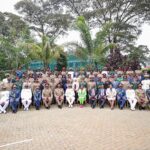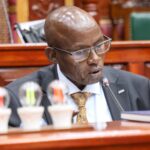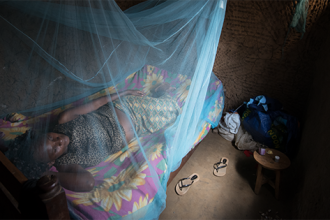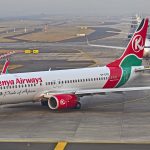Kenya has won a continental award for its use of technology to inform decision making in the fight against malaria.
Kenya emerged winner of the Best Reproductive Maternal Newborn Child and Adolescent Health (RMNCAH) scorecard and tools award, technology that has been decentralized to county -level and used in existing accountability mechanisms which aid in malaria elimination mostly among women and children.
The recognition was made during the just concluded Africa Union (AU) Heads of State and Government in Addis Ababa, Ethiopia. The Kenya Government delegation was led by President William Ruto and included Health CS Susan Nakhumicha.
Six other African countries; Ethiopia, DRC, Zambia, Rwanda, Ghana and Tanzania received awards in different categories recognizing excellence and innovation in their efforts to eliminate malaria. In all, seven African Heads of State and Government received awards from Africa Leaders Malaria Alliance (ALMA).
The ALMA Joyce Kafanabo Award celebrates countries that have made the most progress on digitization, institutionalizing their scorecard tools to enhance data-driven decision-making, empowering citizens to improve health services and outcome.
Meanwhile, the Zero Malaria – Draw The Line campaign to eliminate malaria within a generation and targeting youth aged between 18 and 35 years has gained traction amongst this age bracket. Spearheaded in Kenya by Zero Malaria Campaign Coalition (ZMCC), the campaign seeks to ensure elimination of malaria on the continent.
Research findings presented by ZMCC’s David Kabera at the just concluded Fourth Malaria Conference indicates the targeted generation should live to see how zero malaria will lead to a stronger, healthier and more prosperous world for the next generations.
“It is therefore crucial to engage youth in malaria campaigns if they are to be scalable and effective. There is a need to understand how to incorporate youth insights and engagement in the development of campaigns”, he said.
The Zero Malaria Starts With Me Draw The Line Against Malaria campaign was co-created and developed from within African endemic countries and designed to drive a youth movement to fight malaria.
Qualitative research amongst the age group carried out in Kenya and Nigeria over a two-year period indicated that most of them had been empowered by the campaign to end malaria, which had reached 708 million people.









